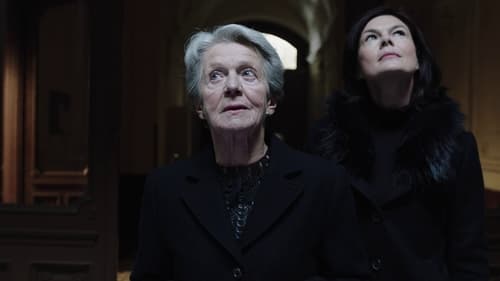
The mother loves her daughter; the daughter loves her mother. The tragedy of misunderstood love. The adaptation of Magda Szabó's novel translated into twelve languages.

Harangozó elvtárs
Vampires are among us! But no need to worry: the Hungarian Secret Police are after them, and beyond the usual spy gadgets, they even use garlic to repel the beasts.

White-bearded Coachman
이리스 레이테르는 부다페스트의 가장 유명한 모자 가게 ‘레이테르’에서 일을 하기 위해 찾아간다. 이전에는 아버지가 운영하였지만, 새로운 소유주가 경영을 맡게 되었다. 중요한 손님을 맞기 위해 분주하게 일하던 어느 날 낯선 남자가 이리스에게 접근하며 오빠를 찾는다. 이리스는 자신의 삶에서 멀어져 있던 오빠의 흔적을 찾으러 부다페스트를 헤매지만, 이 과정에서 마주치는 이들은 그녀에게 도시를 떠나라고 경고한다.
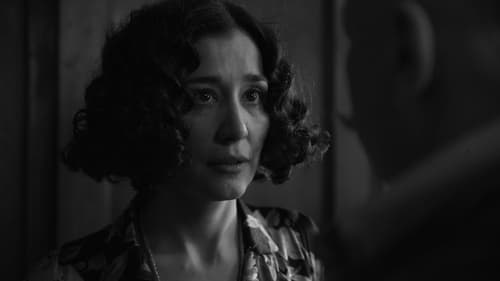
Öregember
Depicts the slow decline of three individuals as they are sucked into a world of sinful existence. It is the story of a wild and voracious love triangle.

Félszemü
It is 1680 – the time of dreamt snow after the Turkish invasion. In the deserted plains of Bácska a living soul cannot be found in a few-days’ walk. Three former prisoners returning from their Turkish captivity – Long-Legged, Lame and One-Eyed – appear among the crumbling walls of a huge abandoned church without a roof. They are looking for their long lost home. How to revive a disappeared civilization? What is the survivors’ personal duty? Without a roof, a collapse is inevitable. The Old Man – a master of ancient knowledge – and his daughter come and with sharing sowing seeds they try to save the community of dispersion. No spiritual leader, no aims. Driven by rapacity, One-Eyed kills the Old Man, rapes his daughter and while looking for the remaining seeds he kills Long-Legged with a sudden anger. At the end of the film, the survivors need to face with dramatic encounters and special temptations. Their redemption under the leadership of Lame’s young son is the pledge for the future.
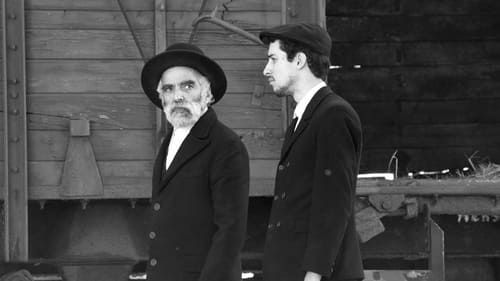
제2차 세계대전 직후 1945년 헝가리의 어느 마을. 전쟁 중에 끌려간 유대인들의 집과 가게를 소유하고 있던 주민들은 유대인 2명이 마을로 향하고 있다는 소식을 듣게 된다. 유대인들이 집과 가게를 돌려달라고 한다면? [67회 베를린 영화제 파노라마 관객상 등상 수상작]

Tibor
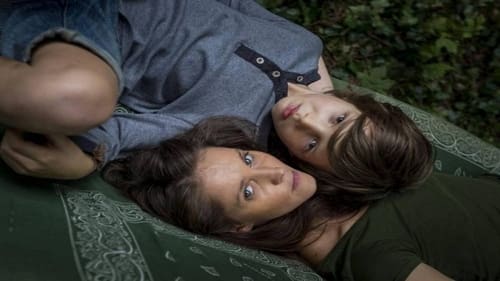
apa
A mother and son as grapple with the questions of life and death on an inner journey filled with strange stories.

Eva's Father
In 1989, Lara Hill, accompanies her art historian father to an abandoned castle across the Iron Curtain. From a car crash outside of the castle, emerges the beautiful and mysterious Carmilla. Lara secrets Carmilla into the castle and the two are drawn into an intoxicating relationship. But when Carmilla mysteriously disappears, and women of the town begin committing suicide, Lara’s psychic wounds erupt into a living nightmare that consumes the entire town of Styria.

Steiner
The story is set in a block house area, where number of strange events take place. Everybody has something to hide, nobody is innocent. Only a little girl chooses to confront the forces of evil.
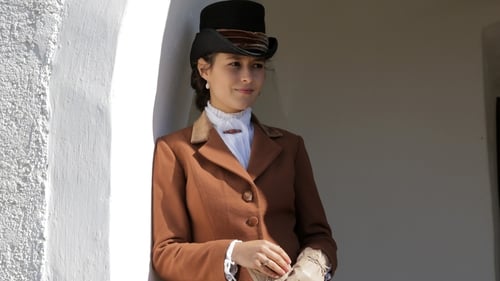
Mesélő
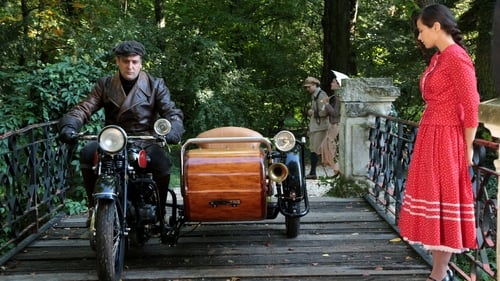
Katonasapkás

Donga
Tita the teenage girl doesn't like her life, so she tries to lie a new, more interesting one for herself. She slips into a world of more lies, parties, drugs and sex.
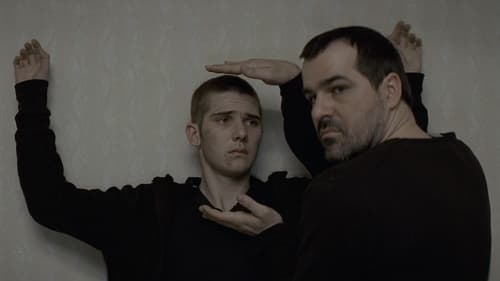
Father
A boy returns home from the institution where he grew up, but finds he is not welcome there. He fights to win the love of his family but ends up murdering them.
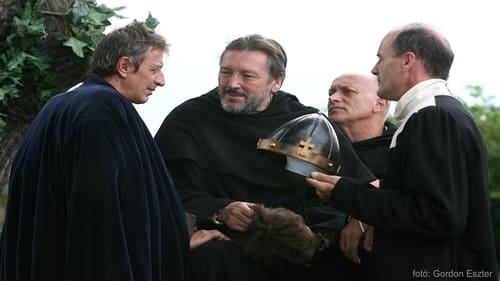
Child of the People
Concerning the Mátyás era in Hungarian history, during the reign of Matthias Corvinus (1443–1490), the film focuses on three eras of the king's life: the young Mátyás fights for the throne, the older Mátyás as king, and the fate of the royal crown and the royal heir after his death.

(as Miklós Székely B.)
Karcsi, a Roma policeman, lives with Eva, a Swede. One day he is called to the scene of the murder of a wealthy trafficker named Schulter. He begins to investigate the crime, interrogate neighbours and suspects, and untangle a complex situation - one that he, himself, complicates even further. For he is a gypsy, who despite being adopted and raised by "regular" Hungarians, has his nose rubbed in his minority status every day. The film, which is based on the novel by Ákos Kertész, is a shrewd genre work full of dusky humour and surreal situations. Tabló follows a vivid succession of strange images that eventually lead to the emergence of the central story about a charismatic police officer on a tireless quest for the truth, though he must fight against virtually everyone and is just as fallible as the next person. Tabló makes a statement on the issue of race and racism - or, indeed, relations between any minority and majority.

Karcsi, a Roma policeman, lives with Eva, a Swede. One day he is called to the scene of the murder of a wealthy trafficker named Schulter. He begins to investigate the crime, interrogate neighbours and suspects, and untangle a complex situation - one that he, himself, complicates even further. For he is a gypsy, who despite being adopted and raised by "regular" Hungarians, has his nose rubbed in his minority status every day. The film, which is based on the novel by Ákos Kertész, is a shrewd genre work full of dusky humour and surreal situations. Tabló follows a vivid succession of strange images that eventually lead to the emergence of the central story about a charismatic police officer on a tireless quest for the truth, though he must fight against virtually everyone and is just as fallible as the next person. Tabló makes a statement on the issue of race and racism - or, indeed, relations between any minority and majority.

Mesélő
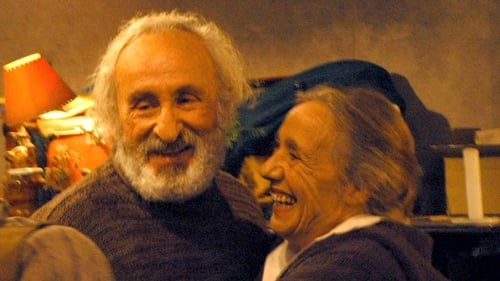
Harmonikázó hajléktalan
After her husband's death, Hanna Szendroy, the former primadonna, portrayed by Maya Komorowska is caught in the claws of the real estate mafia. She looses her lavish home and ends up homeless at the Keleti train station. When she returns to her house, now full of homeless people moved in by the real estate mafia, an unexpected relationship brings hope into her life again.
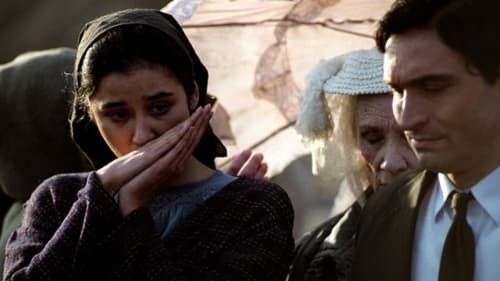
Dragomir

Rozsos Jenci

Old Hungarian soldier
This time, Kapa and Pepe are first of all prisoners of war – and convicts taken to forced labor service, Jews, Hungarian soldiers, German soldiers. Once they are to be executed, then again they are to perform executions. The film tells in spectacular episodes about the fact that in the past more than one century and a half we kept marching from war to war; occupation and liberation turned out to be indifferent, and why couldn’t the Jews execute the SS-guys? Our heroes hover about dilapidated barracks, then again on the bridges of the capital they guess whose satellites or eternal friends for all times we might be just now. In the cupboard, among the preserved fruit bottles, Stalin is still hiding. The authors of the film are cited before court, then in a showcase hospital they are waiting for the end to come. A Soviet soldier-maid closes the film with a Péter Nádas-quote.

Detective Sebők is shot at by a fleeing criminal and then pushed off the road. Sebők breaks his leg. Left by his wife, pensioned by his boss on the basis of false reports, he has a clash with banker Gömöri at the colonel’s party.

Juli apja

The tumultuous history of Hungary through the twentieth century is viewed through the saga of the Hungarian-Jewish, furniture-manufacturing family, the Vendels. After taking over the once successful, but now failing, family business in the 1930s, the family patriarch's dashing elder son decides that the family needs an infusion of new blood. A matchmaker presents him with a photo of a pretty German nursery school teacher. When the two meet, they instantly fall in love, but because Hungary has an alliance with Germany, and the Third Reich prohibits marriage between Gentiles and Jews, the couple must hide their union. Their marriage ultimately stands as a dark foreshadowing of rougher times to come as troubles ensue with the advent of World War II, when the family, its employees and servants must retreat to the basement, where the shop emerges increasingly as a refuge in a world growing more violent and less tolerant.

Tatus, Kapa's father
Kapa, Pepe and Mesi would like to buy a scrapyard of trains, to start a nostalgia train and earn a lot of money. The capital to start with they want to get from grandpa, who has come home from America with a suitcase full of money. Everybody wants Mesi to approach the old man, because she is the only one he would speak to. But Mesi is more concerned with the idea that she wants a child, by now from anyone, while Pepe is jealous. Kapa’s alleged son emerges, with the mafia behind him: they, too, are eager to get grandpa’s money. After threats and blackmailing, poisoned apples are sent, with only one side of them poisonous. Those dead, by the way, are resurrected by the sound of a song. At last, nobody manages to get the money, but it wouldn’t make sense anyway: it’s all fake. The Statue of Liberty, however, turns out to be blind.

The makers, especially Péter Tímár wanted to invoke the atmosphere of the communist dictatorship of Rákosi era lasted from 1947 to 1956. I think they've managed to reconstruct it very much: if you read the history books about the era and newspapers from that times, if you listened to your parents' and grandparents' tales, you will experience the similarities are shocking. The main character (Tutti - Károly Eperjes) is excellent, Eperjes, acting an eccentric, but likable crank is in his royal spirits.

In this absurd comedy two television reporters set out to find the famous gypsy Csulano.

Beautifully shot in black and white, this almost wordless film follows the last day in a man's life. A detailed, attentive, and contemplative study on self-loathing, loss of human dignity, and hopelessness.
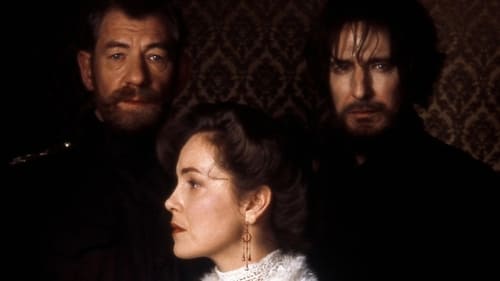
siberian man
Into an era seething with war and revolution, a man comes with an incredible power to heal a nation...or destroy it. Based on the true story of one of the most powerful and mysterious figures in Russian history.
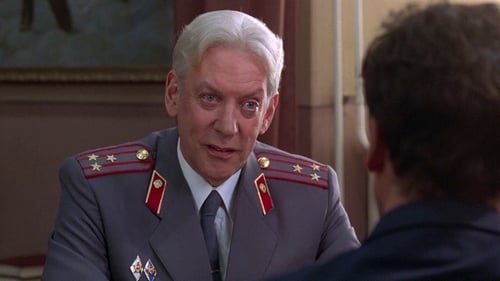
Older Partner
1982년 소련 돈강에서 실제로 있었던 살인사건을 재현한 미스터리 수사물.

This drama follows the dilemma of a young, unwillingly pregnant wife who gives her child up for adoption by a businesswoman. Anna doesn't need another mouth to feed. She can barely afford to care for the two she already has so when she discovers that she is six weeks pregnant she readily accepts the cash offer from Terez, her tough boss at the store where she works. If she will isolate herself throughout the pregnancy, secretly bear the child and immediately allow Terez to sign for it, Anna will receive $50,000. Most of the story then focuses upon Anna's emotional processes as she evaluates her choice. Included are dream segments and shots an unborn baby in the womb.

Birkás
1952, Budapest. Kati is thirteen years old when her mother dies. Her father works as a founder at the Miskolc foundry, deprived of his former position of director-engineer. Kati is left alone in their flat, transformed into a place crowded with tenants. That is, not quite: in her imagination her mother is alive again, for she still needs her.
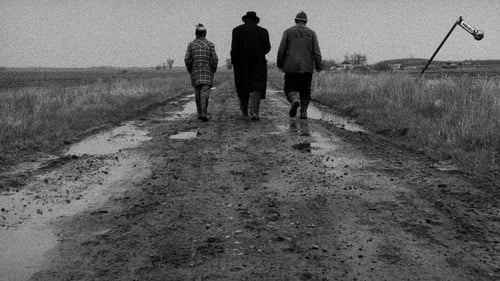
Futaki
헝가리의 대평원을 배경으로 한 이야기. 어딜 보나 지평선뿐인 이곳에서 주민들은 띄엄띄엄 멀리 떨어져 살아간다. 기계문명의 혜택을 받지 못하고 살아온 이들은 이 마을을 벗어나고 싶다는 강한 욕망에 사로잡혀 있다. 이를 위해 그들은 다른 이들을 상대로 한 도둑질과 속임수의 환상 속에서 살아간다. 그러나 자신감이 부족한 그들은 이 초라한 해결책에도 동요하게 되고 결국 계획을 실행에 옮기지 못하고 만다. 사실 그들이 기다리는 것은 자신들을 이끌고 구원해줄 메시아, 지난 과오를 사면해 줄 구세주인 것이다.
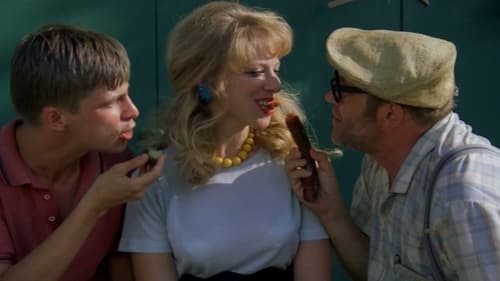
This story has a horse-race fan main character who sells clothes-hangers On one trip, a young, teenager boy relative goes with him. They have a lot of adventures as they become friends. Girls, dance and horse-racing are the themes while they sell the clothes-hangers this summer...

Teherautósofõr
A man who leads a lonely existence with his young daughter accidentally gets involved with a robbery before a manhunt ensues.

Imre Horváth and his friends gather to celebrate his wife's birthday. They are confused because of the changes in the country's politics and want Horváth to be much more active politically, but he is more concerned about his affair with his best friend's daughter.

1958. In the cell of the condemned, seven men await the signs of an approaching execution. All of them recall their pasts and envision their wish-dreams.
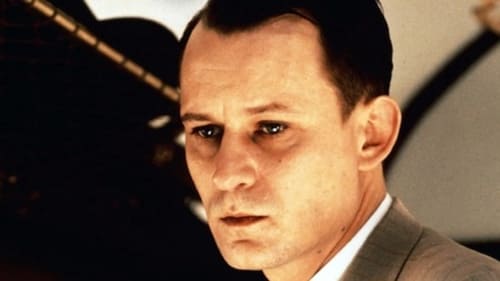
Ferenc Moser
Swedish account of Raoul Wallenberg, the man responsible for the largest rescue of Jews during World War II.

Apa
In this grim story, three murders of young girls are committed in a similar manner, and their bodies are all found in the woods. The only suspect, a young man assumed to be a paedophile, commits suicide during the investigation. A policeman becomes obsessed with solving the mystery of this serial killer and he continues to investigate even after he has been taken off the case.

In the 19th century Austro-Hungarian Empire, David Hersko, a Jewish shepherd, witnesses the attack of a young girl. His home is burned down and he finds shelter with the family of a Jewish logger. The loggers find the body of a young woman which they bury, going against local laws. They are charged with her murder and it is believed that they killed her as a ritual murder.

The last ship (Utolsó hajó) is leaving the quay. Sirens are sounding.

Árvai
In the country reformatory school both the teacher and the children are trapped by the circumstances. From among the pupils excels Sanyi, who cannot accept the fact that his mother does not love him and he keeps on escaping after her. From among the teachers it is Mr. Csőrös who distinguishes himself by listening to the children, looking for those who escaped, Sanyi feels affection to him.
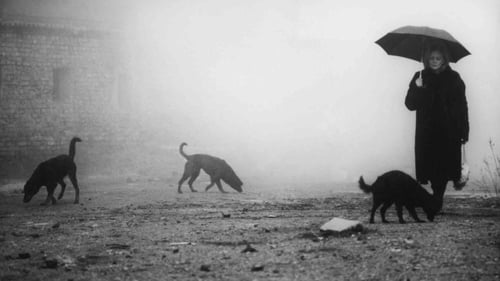
Karrer
'사탄 탱고'의 원작자인 라즐로 크라스나호르카이와 작업한 첫 작품으로 한 남자의 권태와 고독, 배신감에서 오는 좌절감을 우울하고 삭막한 풍경에 담아낸 흑백 영화. 퇴폐적인 매력을 지닌 카바레 가수를 사랑하게 된 카렐은 끊임없이 구애하지만 유부녀인 그녀에게 이용당할 뿐이다. 스산한 날씨,어두침침한 술집, 정처 없이 헤매는 들개는 비참하고 절실한 카렐을 상징하는 중요한 요소이다. 공간의 제약에 도전하는 듯한 다각도의 트래킹 쇼트와 원경을 담아내는 정지된 쇼트가 대비된다.
* 2005 칸영화제 프랑스문화상
(제9회 전주국제영화제)
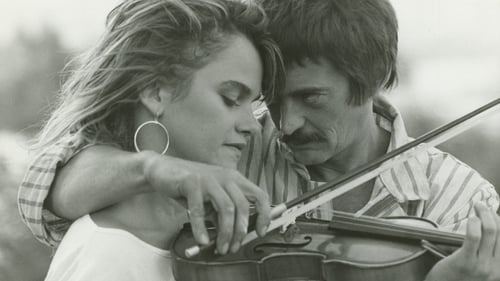
Zoltai is a Hungarian professor who returns home after a visit to the United States. Following a television interview, he commits suicide and leaves a note for his longtime friend Dr. Bardocz. The doctor and Zoltai's colleague Komindi join the police in investigating what drove the man to suicide.

Füge is studying at a high-school. He rarely visits his divorced parents. He establishes a successful music group with his friends. He falls in love with his class-mate, Ágota.

The unskilled, jack-of-all-trades András and his wife, Éva are put in jail for serial work-place thefts, -committed in order to try to ensure a normal living standard for his family - and for aggravated assault committed for self-defence, respectively. Their two small children are put in state care, then given to foster parents. András, still in prison, commits everything to help the released Éva get hold of an apartment and get their children back so that when he will have served his term the family could be together again.
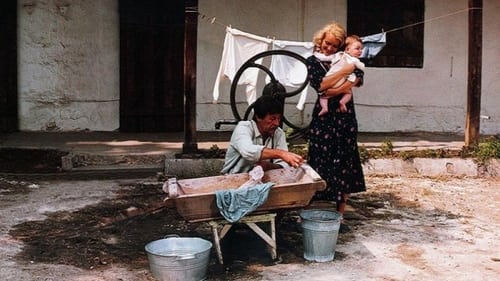
Peter the Black, the buffalo
During the years following World War II, a new boy arrives to class 7/c, and the audience learns to know the lives of the drunkard teacher, his husband-cheating wife, the lonely music teacher hiding behind her paper flowers, the wise count deprived of all his properties, the jovial parish priest and especially the buffalo owner of tragic fate who lost his four daughters, alongside with the young protagonist.

Miklós
In this dense setting, the inhabitants of a large, claustrophobic apartment reveal their darkest secrets, fears, obsessions and hostilities.

A Hungarian TV version of the play shot in just two takes.

Buksi, the smuggler meet with Peter, the intellectual, who has been thought about the perfect crime, without any trace for such a long time. The smuggler forced Peter to work together: Peter's going to plan the action and Buksi's buddies implement it. No clues.
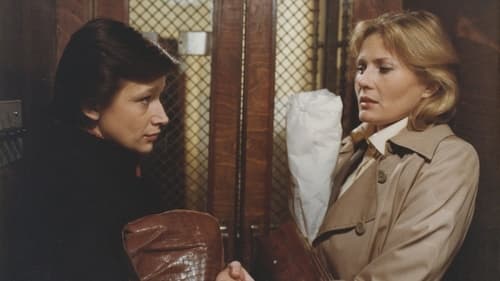
Political and sexual repression in Hungary, just after the revolution of 1956. In 1958, the body of Eva Szalanczky, a political journalist, is discovered near the border. Her friend Livia is in hospital with a broken neck; Livia's husband, Donci, is under arrest. In a flashback to the year before, we see what leads up to the tragedy. Eva gets a job as a writer. She meets Livia and is attracted to her. Livia feels much the same, but as a married woman, has doubts and hesitations. In their work, they (and Eva in particular) bang up against the limits of telling political truths; in private, they confront the limits of living out sexual and emotional truth.

Béla (as Székely B Miklós)
Film by Judit Elek.

He starts going, carrying a dinner-can. His eyes are suddenly arrested by the breasts of the girl on the bicycle, riding towards him. Prompted by the strange movements of the girl as well as by seeing another girl in a wheel-chair, his imagination starts working. In his dream, as he follows a young woman dressed in white, he comes to a tunnel. On its wall, which is full of candles, he reads the sign, "Memories Prohibited". Yet he is still able to enter the Tunnel of Memories.

For this austere, clear and sharp telefeature, Judit Elek focused on the last months of Martinovics’ life: his interrogation by the Austrians, the examining Magistrate Schilling in particular, shown as a battle of wits as well as delusions – on both sides. Elek had wanted to make this film in the early 1970s, but wasn’t allowed to. When she finally got the chance, the reactions were predictable, as the parallels with recent Hungarian history were simply too obvious for officialdom not to feel anxious. History may not repeat itself, but the variations look eerily similar...










































